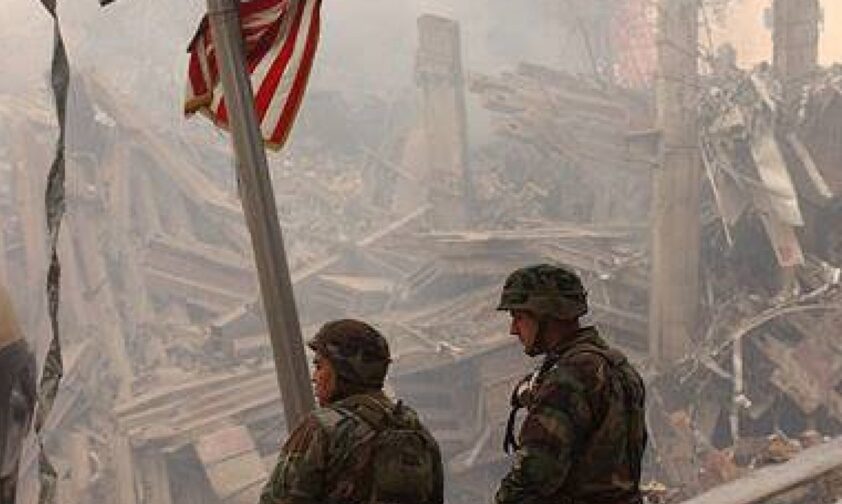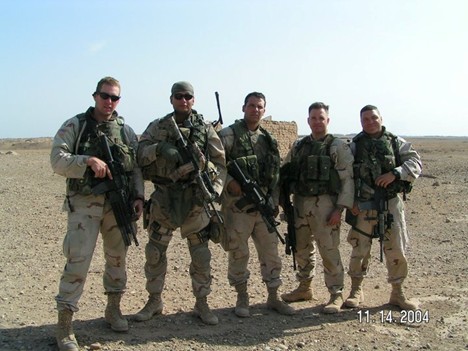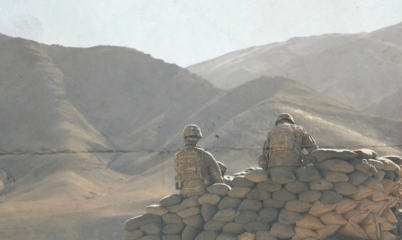
How 9/11 shaped CVA’s foreign policy, through the lens of John Byrnes
This piece accompanies CVA Strategic Director John Byrnes’ article in The American Conservative ― access it here.
How 9/11 shaped CVA’s foreign policy, through the lens of John Byrnes
Entangled alliances, missions without a clear end goal, and decisions based on emotions rather than rational cost-counting only weaken America’s position on the global stage.
Instead of endangering America’s warriors for the interests of other nations, CVA believes that when the United States hits our enemies, we should do so for a clear reason, with rational objectives, and always count the cost.
But John Byrnes, strategic director of Concerned Veterans for America, didn’t always believe that.
John’s Journey
Like most people who experienced it, the terror attacks on 9/11 deeply impacted him.
While John was already in the process of rethinking his views on foreign policy, that day intensified his journey and ultimately led him to embrace policies that empower veterans to better the lives of all Americans, which he champions every day here at CVA.
As a National Guardsman, John went to Ground Zero to assist with search and rescue and cleanup.
He believed the United States should act prudently in the world, avoiding optional wars and needless regime change.
But after witnessing the carnage at Ground Zero, he felt the need for justice and, admittedly, a desire for revenge.
Byrnes in Baghdad ― and Beyond
In 2004, John was deployed to Iraq. While there, John saw corruption, tribal divisions, and a culture of violence on display.
Despite this, he still cheered for Iraq’s first post-Saddam election in 2005.
Later, when deployed in Afghanistan in 2008, John continued to believe in the mission, even though he knew, at some level, that democracy-building was a lost cause.
He realized gradually that his thinking was skewed by seeing America’s endless wars up close. Like a good student, experience, perspective, and additional knowledge changed his mind.
The Personal and Community Cost
When he returned home, his commitment to winning the wars remained, but he witnessed the wars’ effects on his comrades and on the communities from which they had come.
The War on Terror meant frequent mobilizations of the National Guard and those serving as reservists in the military.
Their deployments affect communities and are far too common.
His goddaughter’s 18th birthday finally convinced him that his emotions were driving his support for war. She was only a little younger than he was when he was deployed to Iraq.
The thought of his goddaughter fighting the same conflicts he fought over a decade before was sobering.
From John’s current perspective, striking the perpetrators of 9/11 was just and necessary.
But the mistake in Afghanistan was the years of occupation and regime change that followed.
Instead of nation-building and widening the wars, we should have hit the enemy and come home.
The Question That Matters
When weighing war and peace, John asks a simple question: Was it worth it?
On 9/11’s anniversary, he urges decisions “based on our best rational analyses, not on emotions or the ideas of self-appointed keepers of conventional wisdom.”
He warns, “If we don’t, another generation may lose young men and women to the misguided decisions of those too proud to question their own assumptions.”
Look below for ways to get involved with CVA’s initiatives.
CVA believes America’s foreign policy must change. If you agree, click here to sign the petition.



